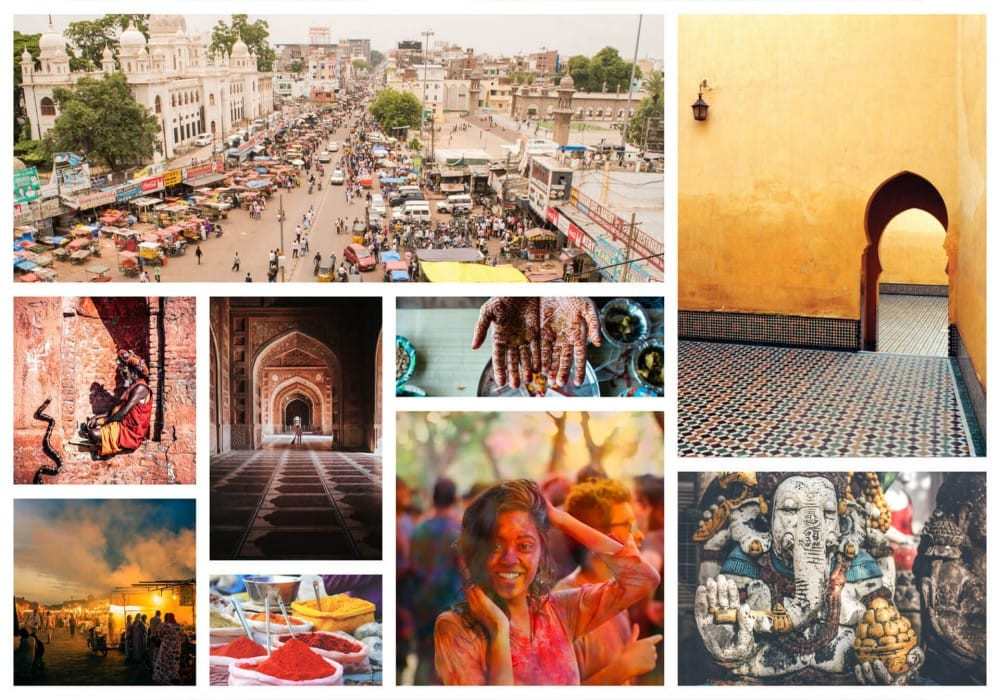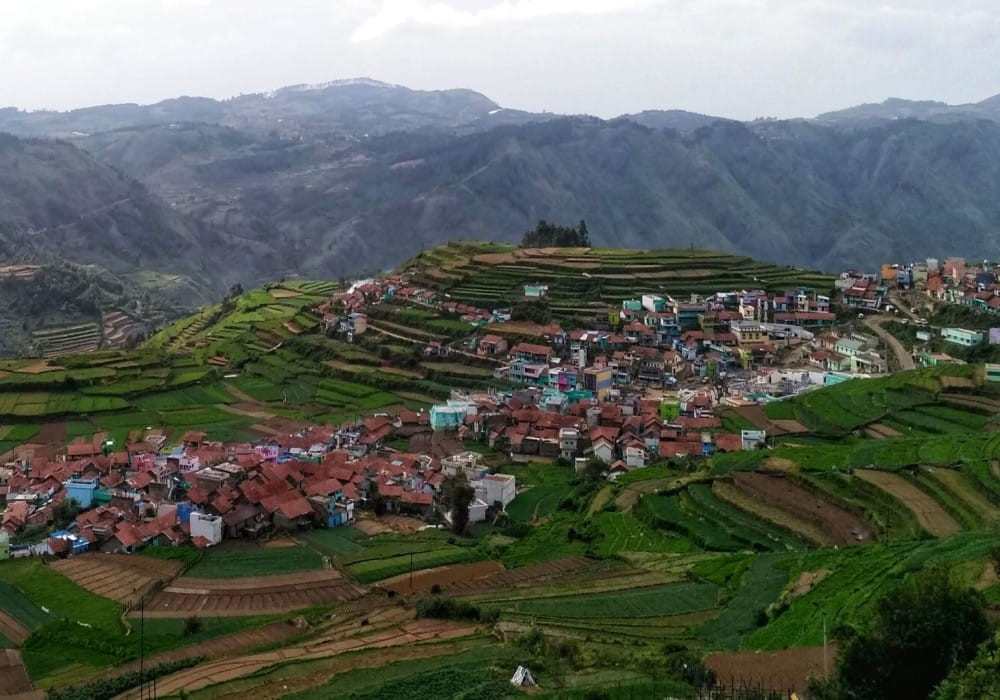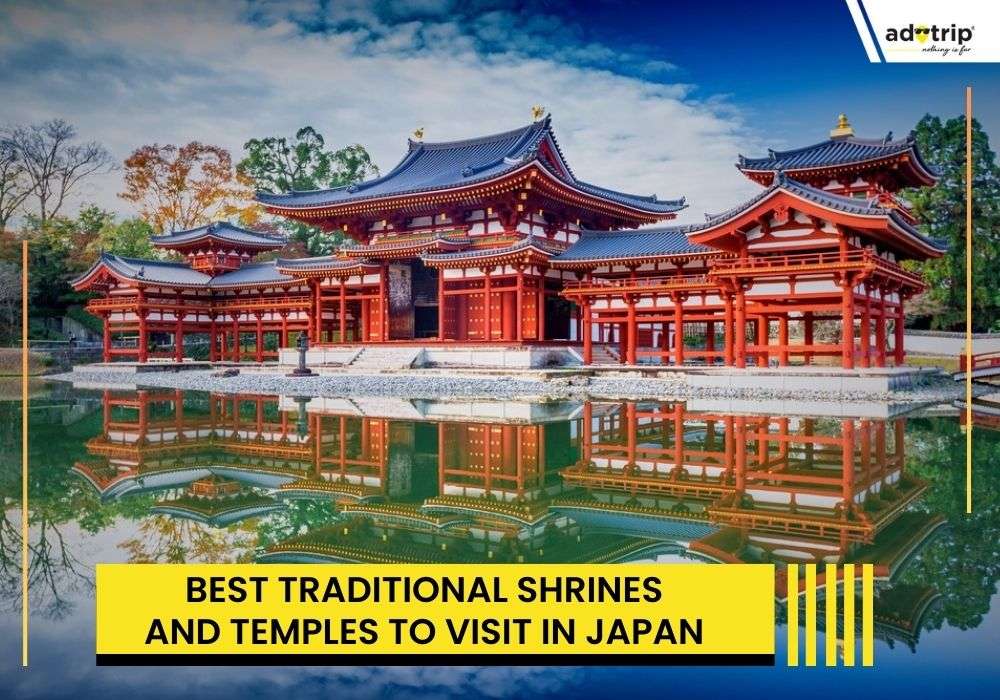
Last Updated At: 10-May-2024
Traditions and Culture Of Japan
The Culture of Japan is a captivating tapestry woven from centuries of rich traditions and artistic expressions. From its mesmerising Japanese traditional music and graceful dance forms to the profound depth of its cultural heritage, Japan's identity is a harmonious blend of time-honoured customs and contemporary innovation. This unique fusion creates a cultural landscape that offers insight into the heart and soul of the nation.
Japanese traditional music resonates as a melodic reflection of the country's history and ethos. With instruments like the koto and shamisen, Japan's musical heritage encompasses a range of rhythms and tones that transport listeners through time. Accompanying this musical heritage are Japanese dance forms, each a delicate and deliberate display of movement. These dances narrate stories, evoke emotions, and perpetuate cultural narratives through elegant choreography and symbolism.
Japanese Culture and Traditions
The cultural heritage of Japan forms the bedrock upon which modern society flourishes. It is woven into the fabric of everyday life, from the profound respect for nature and ancestral traditions to the vibrant festivals that dot the calendar. This heritage serves as a bridge between generations, preserving rituals and values that hold enduring significance. In this exploration of Japanese Culture, we delve into the captivating world of music, dance, and heritage that continues to shape the nation's identity.
- Divine Insights | Exploring the Religious Beliefs of Japan
- Ink and Imagination | The Literary and Cinematic Tapestry of Japan
- Architectural Marvels | Unveiling the Diversity of Japanese Architecture
- Harmony in Notes | A Journey through Japanese Traditional Music
- Savouring Culture | A Taste of Japanese Cuisine
- Seasons of Celebration | Cultural Festivals that Define Japan
- Crafting Traditions | Exploring Japanese Traditional Crafts
- Elegant Movements | Discovering Japanese Dance Forms
- Preserving Legacy | Cultural Heritage of Japan
- Threads of Tradition | Unveiling Traditional Clothing in Japan
1.Divine Insights | Exploring the Religious Beliefs of Japan
Japan's religious landscape is a tapestry woven with intricate threads of Shintoism, Buddhism, and various syncretic practices. Shinto, the indigenous faith, reveres kami (spirits) that inhabit natural elements. Its influence is seen in torii gates that mark sacred spaces and elaborate rituals honouring these spirits. Buddhism, brought from India and China, has intertwined with Shintoism to create a syncretic belief system that shapes Japan's spiritual identity. Temples like Kinkaku-ji (Golden Pavilion) and Kiyomizu-dera are iconic examples of this fusion.
2. Ink and Imagination | The Literary and Cinematic Tapestry of Japan
Japan's literary and cinematic creations are windows into its collective psyche. From the timeless beauty of haiku poetry by Matsuo Bashō to the introspective narratives of modern authors like Haruki Murakami, Japanese literature captures the nuances of human emotions and societal evolution. Japanese cinema, celebrated by directors like Akira Kurosawa and Hayao Miyazaki, delves into the profound with themes ranging from samurai ethics to environmental consciousness.
3. Architectural Marvels | Unveiling the Diversity of Japanese Architecture
Japanese architecture marries aesthetics with functionality, evident in structures like traditional wooden shrines and contemporary skyscrapers. Ancient marvels like Himeji Castle showcase the artistry of samurai-era architecture, while modern designs like Tokyo's Skytree symbolise technological innovation. The simplicity of Japanese tea houses and the intricate details of zen gardens reflect a reverence for nature and the harmonious coexistence between built and natural environments.
4. Harmony in Notes | A Journey through Japanese Traditional Music
Japanese traditional music encompasses a spectrum of sounds, from the contemplative melodies of the Shakuhachi flute to the energetic beats of taiko drums. The delicate tones of the koto, a zither-like instrument, evoke emotions and depict landscapes through sound. Traditional music often accompanies Noh and Kabuki theatre, adding depth to the performances and creating a sensory experience transcending time.
5. Savouring Culture | A Taste of Japanese Cuisine
Japanese cuisine, celebrated worldwide, is a symphony of flavours, textures, and aesthetics. Sushi and sashimi showcase the art of minimalism and precision, while ramen and tempura reflect culinary creativity. The concept of "washoku" emphasises balance, seasonality, and presentation, resulting in an artful approach to dining. Ingredients like umami-rich seaweed and delicate dashi broth contribute to the distinctiveness of Japanese flavours.
6. Seasons of Celebration | Cultural Festivals that Define Japan
Japanese festivals, or "matsuri," punctuate the calendar with vibrant celebrations. Cherry blossom festivals herald the arrival of spring, while Tanabata festivals celebrate star-crossed lovers. Obon honours ancestors with lantern-lit processions, and Gion Matsuri showcases elaborate floats. These festivals embody the cyclical rhythms of nature and the enduring bond between people and their traditions.
7. Crafting Traditions | Exploring Japanese Traditional Crafts
Japanese traditional crafts exemplify meticulous craftsmanship and reverence for tradition. The art of pottery is evident in delicate porcelain and rustic Raku ware. Intricate origami paper folding and washi paper-making embody the sheer beauty of Japanese aesthetics. Artisans continue to refine these skills, preserving a tangible link to the past while adapting to contemporary tastes.
8. Elegant Movements | Discovering Japanese Dance Forms
Japanese dance forms, like Noh, Kabuki, and traditional folk dances, are a fusion of movement, symbolism, and storytelling. Noh's slow, deliberate motions convey emotional depth, while Kabuki's dramatic expressions captivate audiences. Traditional folk dances reflect regional identity and bring communities together during festivals. Dance in Japan is a visual language that conveys stories and emotions beyond words.
9. Preserving Legacy | Cultural Heritage of Japan
Japan's cultural heritage is enshrined in UNESCO World Heritage Sites like Kyoto's temples and Nara's historic monuments. The serene Zen gardens, the architectural marvels of castles and shrines, and the meticulously preserved teahouses offer a glimpse into Japan's historical and spiritual past. Efforts to protect intangible cultural practices, such as tea ceremonies and traditional theatre, contribute to the continuity of this legacy.
10. Threads of Tradition | Unveiling Traditional Clothing in Japan
Traditional clothing in Japan, epitomised by the kimono, reflects the country's cultural depth and historical significance. Each layer and design carries meaning, and kimono variations are worn for various occasions: the yukata, a lighter summer robe, graces festivals. Traditional clothing links to Japan's past, with patterns, colours, and styles reflecting regional identities and timeless aesthetic sensibilities.
In the kaleidoscope of cultural richness that is the Culture of Japan, one finds a harmonious blend of tradition and modernity, artistic expression and profound spirituality. Japan's culture offers a journey through time and space, from its awe-inspiring architectural marvels that pay homage to nature's beauty to the delicate notes of traditional music that evoke emotions. Its literature and cinema delve into the human psyche, offering insights into societal evolution and individual introspection. As modern Japan strides into the future, its Culture remains a cornerstone, guiding its path while embracing the world with open arms. So, what are you waiting for? Back your stuff and kick start your journey to Japan; plan your trip with Adotrip, and enjoy a smooth and hassle-free journey.
With us, nothing is far!
Read More: Best Beaches in Japan
Book Japan Tour Packages
Frequently Asked Questions about the Culture of Japan
Q1. What religious and philosophical traditions influence Culture?
A1. Religious and philosophical traditions that influence Culture include:
- Shintoism: Indigenous faith focusing on kami (spirits) in nature and ancestors.
- Buddhism: Introduced in India, it intertwines with Shintoism and shapes beliefs.
- Confucianism: Impact on ethics, social structure, and relationships.
- Zen Buddhism: Influence on aesthetics, mindfulness, and artistic expression.
- Taoism: Reflection on concepts of balance, harmony, and natural order.
Q2. How important are concepts like wa, nemawashi, and kaizen?
A2. Concepts like wa (harmony), nemawashi (consensus building), and kaizen (continuous improvement) are highly important in Japanese Culture:
- Wa: Promotes social cohesion, collaboration, and peaceful coexistence.
- Nemawashi: Essential for decision-making and maintaining harmony in group dynamics.
- Kaizen: Drives innovation, productivity, and a commitment to constant refinement.
Q3. How strong is adherence to social hierarchy and customs?
A3. Adherence to social hierarchy and customs is significant in Japanese Culture:
- Social Hierarchy: Respect for age, status, and authority is ingrained in interactions.
- Customs: Traditions guide behaviour, from bowing to gift-giving and tea ceremonies.
- Group Harmony: Upholding these norms fosters social unity and avoids conflict.
- Changing Dynamics: While modernisation impacts some customs, core values persist.
Q4. What cultural practices reflect Japan's geographic isolation?
A4. Cultural practices reflecting Japan's geographic isolation include:
- Traditional Arts: Distinctive arts like tea ceremony, ikebana, and Noh theatre.
- Language and Writing: Unique written language (kanji) and spoken language.
- Religious Syncretism: Fusion of Shinto and Buddhism due to isolation from other influences.
- Culinary Specialties: Traditional cuisine and food preservation techniques.
Q5. How influential are Japanese arts like martial arts and theatre?
A5. Japanese arts like martial arts and theatre are highly influential:
- Martial Arts: Reflect discipline, honour, and spiritual growth (e.g., judo, kendo, aikido).
- Theatre (Noh, Kabuki): Convey cultural narratives, emotions, and historical tales.
- Aesthetic Impact: Influence modern Culture, film, animation, and visual arts.
- Global Recognition: Showcased internationally, contributing to Japan's soft power.
Q6. What role do Japanese gardens play in society?
A6. Japanese gardens play a significant role in society:
- Aesthetic Beauty: Designed for tranquillity and aesthetic appreciation.
- Spiritual Reflection: Spaces for meditation, mindfulness, and connection to nature.
- Cultural Symbolism: Elements represent seasons, balance, and natural harmony.
- Historical Continuity: Preserve traditional landscape design and gardening techniques.
Q7. How tied to identity is Japanese cuisine?
A7. Japanese cuisine is closely tied to identity:
- Cultural Expression: Reflects values of seasonality, presentation, and simplicity.
- Global Recognition: Sushi, ramen, and more are iconic worldwide.
- Historical Roots: Culinary traditions showcase history, geography, and social customs.
- Social Connection: Shared meals and rituals strengthen familial and communal bonds.
Q8. How advanced are Japanese technology and robotics?
A8. Japanese technology and robotics are highly advanced:
- Innovation Hub: Pioneers in electronics, automotive, and consumer tech.
- Robotics Leadership: Leaders in robotics for industries like manufacturing and healthcare.
- Cutting-Edge Research: Research in AI, automation, and humanoid robots.
- Cultural Impact: Reflects modernisation and futurism in cultural narratives.
Q9. What unique subcultures have emerged in Japan?
A9. Unique subcultures in Japan include:
- Harajuku Fashion: Creative and eclectic street fashion scene.
- Otaku Culture: Enthusiastic fandom for anime, manga, and video games.
- Kawaii Culture: Embracing cuteness in aesthetics and consumer products.
- Visual Kei: Glam rock-inspired music and fashion subculture.
- Gyaru Fashion: Youthful and glamorous style characterised by bold makeup and fashion.
Q10. How has Japanese pop culture been exported worldwide?
A10. Japanese pop culture has been exported worldwide through:
- Anime and Manga: Global popularity of animated series and comics.
- J-Pop and K-Pop: Music genres gaining international fanbases.
- Video Games: Iconic franchises like Nintendo and Sony PlayStation.
- Fashion Trends: Harajuku and cosplay trends are embraced in various countries.
- Film and TV: Acclaimed directors like Hayao Miyazaki and film festivals showcase Japanese cinema.
--- Published By Adotrip
Latest Blogs

Long Weekends In India 2025 - List of Holidays

Kazakhstan Travel Guide 2025: Affordable Luxury, Visa Free E...

Think Ayodhya is Just Temples? Discover Its Hidden Artistic...

Why Azerbaijan is the Best Budget Friendly Alternative to Sw...









.jpg)
.jpg)


 Dubai
Dubai Malaysia
Malaysia USA
USA





